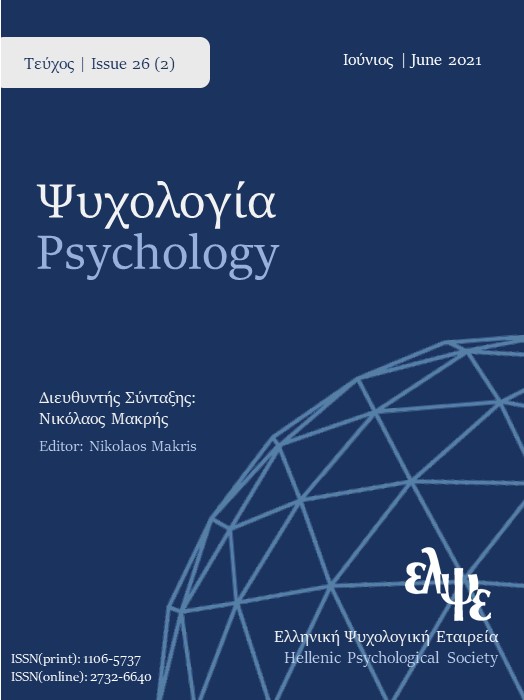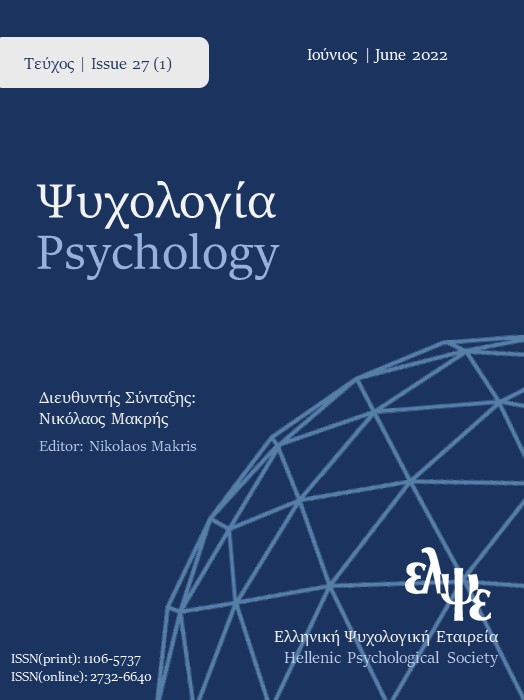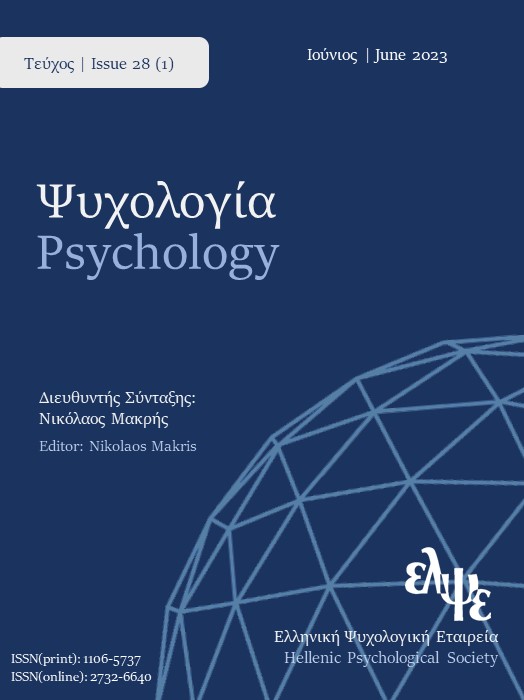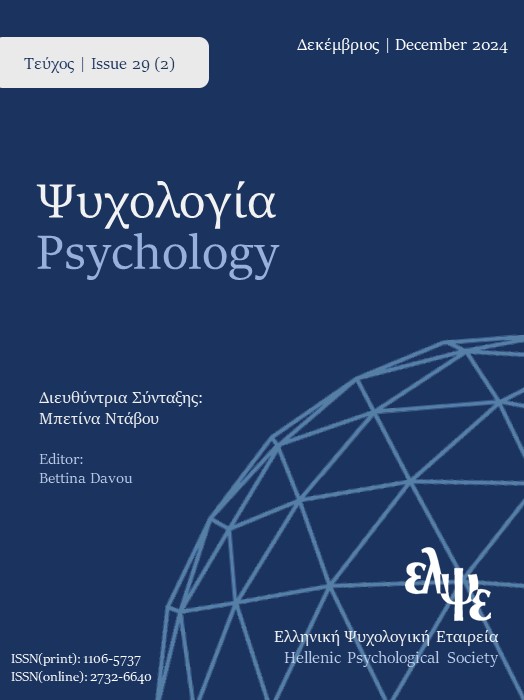Mental health literacy of Greek teachers: Highlighting critical factors for identifying and supporting students in need
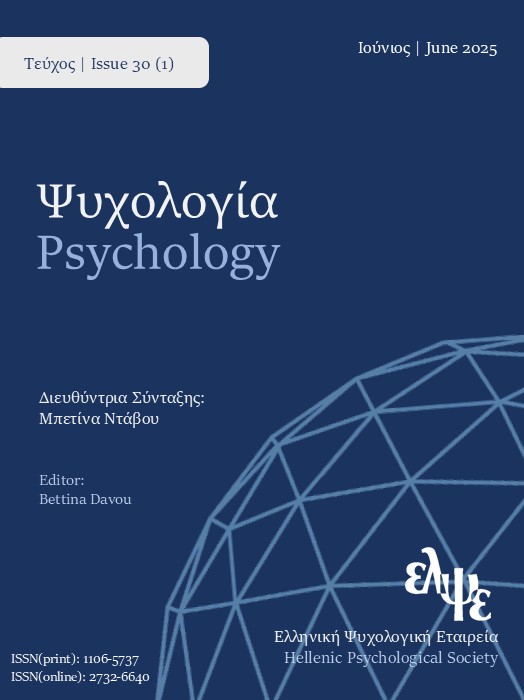
Abstract
The study aimed to investigate the level of teachers’ literacy and comfort in relation to mental health issues of children and youth, as well as to highlight the factors that affect teachers’ mental health literacy. The study was addressed to teachers working in public primary and junior high schools of general education. A sample of 843 teachers (542 primary, 301 secondary) completed online the Awareness, Knowledge and Comfort scale consisting of thirteen statements answered on a five-point Likert scale. Results revealed that Greek teachers had on average moderate levels of awareness, knowledge, and comfort regarding students’ mental health issues. T-test of independent samples and One-way ANOVA revealed that demographic characteristics (gender, specialty, educational level, grade level, relevant training, years of service, experience with mental health problems) affected the factors under study. Awareness of the services and procedures to support students was found to constitute a mediating factor in the relationship between knowledge about students’ mental health problems and comfort in managing them. Given that mental health literacy is an urgent topic for teacher preparation to act proactively and support appropriately students in need, the findings provide a wealth of information for the design of relevant educational programs for teachers.
Article Details
- How to Cite
-
Spyropoulou, E., Athanasiades, C., Stogiannidou, A., & Kourkoutas, E. (2025). Mental health literacy of Greek teachers: Highlighting critical factors for identifying and supporting students in need. Psychology: The Journal of the Hellenic Psychological Society, 30(1), 38–57. https://doi.org/10.12681/psy_hps.38443
- Section
- RESEARCH PAPERS

This work is licensed under a Creative Commons Attribution-ShareAlike 4.0 International License.
The journal PSYCHOLOGY adopts a Platinum open-access policy. Submission, processing or publication costs are waived by the Hellenic Psychological Society. Papers published in the journal PSYCHOLOGY are licensed under a 'Creative Commons Attribution-ShareAlike 4.0 International' licence. The authors reserve the copyright of their work and grant the journal the right of its first publication. Third-party licensees are allowed to use the published paper immediately after publication as they wish, provided they retain the defined by the license copyright formalities, regarding the reference to its author(s) and its initial publication in the journal PSYCHOLOGY. Moreover, any adjusted work should be shared under the same reuse rights, so with the same CC license.



